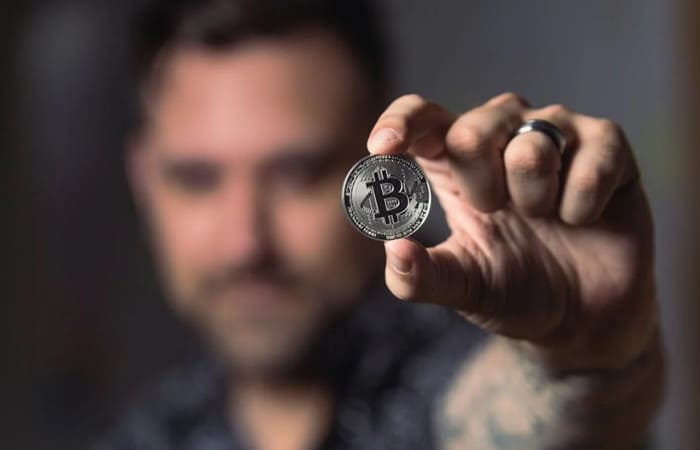Shall we argue or shall we talk?

Autor Bel Cesar
Assunto STUM WORLDAtualizado em 08/04/2020 11:34:53
Translated into English by Kevin Mathewson - kevinmathewson88@yahoo.com.br
And they're off! Another argument is off and running, launched by an accusation. The person accused feels offended and tends to answer in kind. This sterile debate over "who is doing what to whom" only generates more indignation and distress. So what seems like a conversation is actually nothing but an emotional unloading, that is to say, a series of monologues packed with the frustration of undigested feelings.
It's possible for an argument to turn into a good conversation. But for this to happen we have to cultivate a genuine interest in improving our relationship.
Someone who only wants to make accusations is not interested in listening. Without listening there's no conversation. So why argue if you don't want to get anywhere?
If the situation is already bad, an argument based on accusations can make it even worse. The basis for a healthy argument can be found in the motivation that gave rise to it. Do we want to argue to changes things for the better or just to blow off our anger? If the intention is to improve things, we can talk, but otherwise it's better to stop: after both parties state their grievances, it's preferable to take a break to explore our feelings and reflect on what has been said.
When an argument is based only on anger, it becomes an avalanche of reactions. There's no time to feel the empathy necessary to give rise to a new understanding. There's no space for listening when the priority is to defend yourself. While the other person is speaking aggressively, the one who's listening only has time to prepare his or her defense. How is it possible truly to listen to someone else if you're concentrating on hitting back?
For example, the more we try to force another person to change, based on our point of view and emotional needs, the greater emotional coldness and physical distance emerges between us - because intuitively the other person will move away to try to clarify his position.
The trap of emotional blackmail has its consequences: relationships become artificial to the extent that they must follow rules imposed by one of the partners.
Often we demand things of others that have not been previously agreed upon. Ironically, the more we surrender ourselves emotionally, the greater our demands are. Without realizing it, we project ideals and exaggerated expectations on relationships as they become more intimate. And we don't always hear what we're waiting to hear!
It's one thing to defend yourself, another to look for a solution. The way forward is to find a way out instead of waging a constant battle to see who is more in the right.
If we want to argue with the intention of resolving a conflict, we have to examine our role, whether we are the dominant or the dominated figure (in the role of the victim). Because ironically, the attacker attacks because he feels attacked, and the victim reacts aggressively. When an argument is based on the intention to control the other person, both parties feel suffocated. To overcome this friction it is necessary to stop fighting. But this does not mean letting oneself be defeated.
What we desire could be right and valid, but even so, we cannot impose our demands on others. We can be clear about our emotional needs, but at the same time, if we assume a demanding stance, imposing concern for our vulnerability on the other person, we will unleash ill-feeling and do nothing to help change the situation.
It's healthy to reveal to the other person our vulnerability; what does not work is to transfer to the other person responsibility for looking out for our wellbeing. When we try to pass on concern for our vulnerability to the other person, he will gradually lose respect for us because inevitably he will feel overloaded in having to manage all of our frustrations and weaknesses, even if only temporarily.
If we want to have healthy relationships, we are going to have to abandon the attitude of self-pity. To get stuck in the role of the victim is a dangerous trap, because we easily become hostages to the emotional availability of the dominant party. We transfer to him the ability to create both tension and relief. It's always the same old story based on co-dependency, that is, when we know what we are going to feel based on whatever the other person is feeling. If he is affectionate and good-humored "we" will be happy, otherwise we must wait for him to become available.
Obviously, being with someone who is in a bad mood generates discomfort. But even so, we can still preserve our inner balance. At times like these, it is important to know how to create a healthy distance. Just as when we get close to fire: we intuitively know the proper distance so we can be warm and comfortable, and when we can get burned by getting too close!
Every argument has a starting point, but rarely is it the cause of the conflict. As long as we do not open up to the real reason for what's bothering us, the other person will feel manipulated (even if unconsciously). Without knowing the original reason for the whole argument, he will react by drawing into himself, and losing his spontaneity.
In such cases, we can follow the advice of the psychologist John Welwood: "The best way to put an end to this sort of power struggle is to invite our partner to step out of the spotlight and come backstage with us. When two people grant each other access to what's going on backstage, they start to develop a bond that is deeper, with greater empathy. And this is what will help put a stop to the mutual battering of egos."* At these moments of openness it is important not to try to fix or improve anything. There's no need to agree or disagree. Just acknowledge the difficulties.[*From: Alquimia do Amor, Ed. Ediouro, translation of Love and awakening: Discovering the Sacred Path of Intimate Relationships (HarperCollins, 1996); quotations are translated from the Portuguese edition]
Strangely, the same thing goes on internally: at the moments of greatest emotional tension we usually become distanced from ourselves. Instead of feeling our emotions we tend to reject them. How does this happen? When we react to our own emotions, even though it is uncomfortable, we can look behind the scenes of our emotional pain, to show ourselves what is going on behind our indignation. There is a moment in which we have to stop trying to repair ourselves, because the more we get involved with ourselves, the more solidity we create in our conflicts.
We have to get past the habit of being separated from ourselves. This happens when we see our own internal lack as a failing, instead of recognizing it as a stage of natural perception on the path to self-knowledge. Here there is an internal struggle between what we feel and what we want to feel. We have to stop being reactive in order to overcome our emotional anguish.
Emotion is not a static experience. What seems to throw us off balance at one moment may have a less dramatic effect at another time. The realization that we can perceive the same feeling in different ways helps us not to jump the gun in the way we appraise things. The more we react to our thoughts, the more solid they become.
The problem is that we learn to think more than we learn to feel. We become insecure about dealing with our own emotions because we develop an intellectual understanding that is unable to touch our inner experience. Because of this, when engaged in an argument, not everything we say or hear is capable of achieving the desired effect. But we mustn't give up. Because it is only by interacting that we can learn the art of communicating.
It is healthy to learn to fight. If we become passive in the face of an aggressive assault we become weaker and weaker, and more vulnerable to others' aggression. As Dr. Rüdiger Dahlke reminds us of what happens with cancer in his "A agressão como oportunidade (Ed. Cultrix): "the body's defenses do not identify the cancerous cells as foreign or dangerous and that's why they let them alone..."* It's healthy to defend ourselves!
* ["Aggression as opportunity" - Aggression als Chance: Be-Deutung und Aufgabe von Krankheitsbildern wie Infektion, Allergie, Rheuma, Schmerzen und Hyperaktivität (Munich, 2003); quotations are translated from the Portuguese edition]
In closing, we can keep in mind a warning offered by Dr. Dhalke: "If we refuse to face a problem, it will be shown to us against our will." Courage in dealing with what confronts us and defending our projects, principles and values awakens our instinctive strength for living.
Bel Cesar is a psychologist, and practices psychotherapy from the perspective of Tibetan Buddhism. She works with the EMDR technique (Eye Movement Desensitization and Reprocessing). She is the author of Viagem Interior ao Tibete [Inner journey to Tibet], Morrer não se improvisa [Death cannot be improvised], O livro das Emoções [The book of emotions] and Mania de sofrer [Crazy about suffering], published by Editora Gaia.









